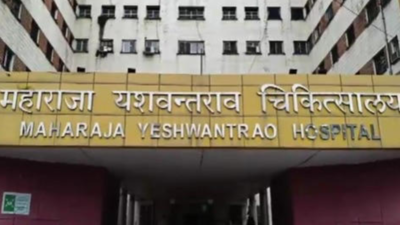ARTICLE AD BOX

INDORE: There was outrage among people in Indore after a newborn died at the neonatal intensive care unit (NICU) of Indore's largest govt hospital, Maharaja Yashwantrao Hospital (MYH), on Wednesday after it was reportedly bitten by rats inside the unit.
Hospital authorities, however, denied that the newborn died because of rat bites. A high-level investigation has been instituted. This comes just a day after another newborn died on Tuesday, also of suspected rate bite, bringing the total number of infant deaths in the unit to two."Our govt will not tolerate any carelessness. I have issued instructions to the collector and informed the principal secretary of the health department.
I have also asked the health minister to take action," CM Mohan Yadav told newspersons here on Wednesdays. Hospital superintendent Dr Ashok Yadav said the infants died from congenital anomalies, not rat bites. A rat had bitten a couple of fingers of the baby on Tuesday night and he died on Wednesday. Thus, rat bite cannot be the cause of death," Dr Yadav added. The family of the newborn who died on Wednesday refused a post-mortem examination and took the body home, Dr Yadav said.
He added that the post-mortem examination report of the infant who died on Tuesday revealed multiple vessel problems in heart, low blood platelet counts and septicemia. The State Human Rights Commission has taken note of the incident and has written to the hospital's superintendent, demanding a report within a month. Head of department of paediatric surgery Dr Brajesh Lahoti was issued a show cause notice, demanding explanation for lapse in duty.
Two other officials - assistant superintendent and building in-charge Dr Mukesh Jaiswal and nursing officer in-charge in paediatric surgery department Pravina Singh - were suspended.The private agency responsible for cleanliness in the hospital has been fined Rs 1 lakh and served a termination notice.According to doctors, the hospital, along with its adjacent medical facilities like Chacha Nehru Children's Hospital and the Cancer Hospital, has become a breeding ground for rats, primarily because attendants bring food into the wards. They explained that rats are drawn to food and that medicine and glucose provide them with the energy to breed. They stressed that regular pest control and a ban on outside food are necessary to curb the rat population.Dr Yadav claimed that the ongoing rainy season has prompted the rats to come out from their burrows after water filled them. A broken pipeline has also given them a way to enter the wards, even those situated on the second floor.



.png)
.png)
.png)
















 6 days ago
7
6 days ago
7







 English (US) ·
English (US) ·